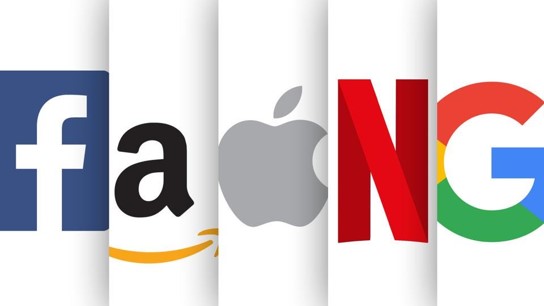If you arrived on planet earth recently let me enlighten you up saying “FAANG stocks” have been hammered in recent months and there is no bottom yet .In this post will discuss will these tech giants will rise again.
A Faangs value assessment
Despite all of the misery and gloom, the Faang stocks are still important. Consider how they performed this year:

Not well! Is there a buying opportunity developing?
There are two things to keep in mind right away. To begin with, the Faangs are now known as the Faamgs. Netflix may yet make a comeback, but its recent woes have demonstrated once and for all — at least to Unhedged — that it is a media firm, not a software company, and that it does not belong among tech’s big dogs. On the other hand, Microsoft’s multiyear resurgence as a cloud computing powerhouse demonstrates that it is completely at home among the four younger corporations.
Second, Unhedged continues to dispute that Google is now known as Alphabet and that Facebook is known as Meta. Facebook is still a social network, while Google is still a search advertising company. Inane rebranding does not fool us.
Why are the Faangs so important, and why should we be on the lookout for an opportunity to buy them cheap?
To begin, they account for a fifth of the S&P 500, with a market capitalization of $7 trillion. The market will (mostly) follow them. Furthermore, large companies should be able to defend their margins in difficult periods like the one we are currently experiencing by leveraging their market position and plentiful resources.
Despite the fact that they are all tech enterprises, the Faangs are a diverse set of businesses. Microsoft and half of Amazon (depending on how you slice it) are businesses-focused computing enterprises. The other half of Amazon is a global e-retailer with a strong domestic focus.
With the possible exception of Amazon, they are all extremely profitable. They generate so much free money that they don’t know what to do with it. This means that the notion (a canard at best) that tech stocks must fall as interest rates rise does not applicable to the Faangs. They are likely to extract as much value from short-term profits as the oil corporations, consumer-goods brands, and banks that make up value portfolios.
A look of the recent drawdowns, values, and growth rates of the five groups:

The two of the five that have dropped the most still appear to be the most costly. Amazon’s e-commerce business may have a brief halt as a result of its rapid expansion early in the epidemic, but I’m not willing to pay more than 50 times earnings to find out. Facebook has a low price-to-earnings ratio and generates a lot of cash, making it appear to be a value stock, but will the market value it on cash flow? Or will the chastisement continue till revenue growth increases (7% in the first quarter)?
Which of the other three would you prefer to possess if we enter a recession next year? The main business of Google is cyclical. For a fifth of its sales, Apple is reliant on a slowing China. In a slowdown, however, Microsoft’s solid position with business clients would be highly enticing.
These are all fantastic firms, and while they are not cheap yet, they are a lot cheaper than they were previously, and the fact that the zeitgeist is suddenly anti-tech should not deter us from keeping a careful eye on them while the present bear market unfolds. There will be an opportunity to strike.
Here’s an interesting contrast. In terms of market cap, the Faangs are ranked 1, 2, 3, 4, and 7 in the S&P 500. Numbers 8, 9, 11, 12, and 14 will likewise benefit from all of the perks that come with becoming absolutely massive businesses:

A large value retailer, a diverse healthcare company (in pharma, medical equipment, and consumer products), the largest health insurer, half of a payment duopoly, and a collection of strong consumer staples brands are all represented (Pampers, Tampax, Gillette, and so on). It’s a typical defensive basket, the yang to the Faangs’ yin. Unfortunately, a clever acronym does not come to mind (but we’re open to suggestions).
Outside of Visa, the two groups’ price/earnings values are similar, and while the defensives’ recent growth has been weaker, we could see a convergence in a recession. The defensives’ reduced volatility is also appealing (“beta” is a measure of volatility compared to the wider market, with “1” reflecting market volatility, 1.2 representing 1.2 times market volatility, and 1.3 indicating 1.3 times market volatility),With the exception of Visa, defensives have outperformed so far in this down market (the S&P is off 16 per cent from its high).
(You might be wondering what happened to the market capitalization rankings of 5, 6, 10, and 13.) Tesla, Berkshire Hathaway, Nvidia, and Exxon are the companies. They all have peculiar characteristics that muddled the comparison).
Readers are faced with a challenge. Which basket will perform better over the coming year, the Faangs or the defensives? The pessimist in me chooses the defensives, but just for the next 12 months or so. It will be time to return to the large IT businesses that have powered the market for the previous ten years at some point, and it may be sooner than you think.
Also check out article Why we might not go into recession or we will have mild recession .
Also Follow us on Twitter. we tweet market updates and news.





